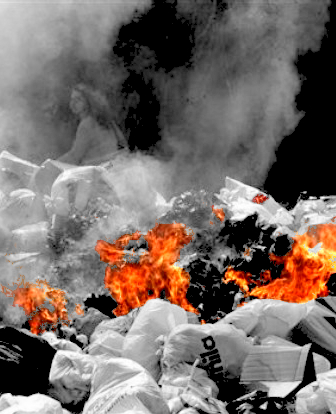Fire pits at rubbish tips add a billion tonnes
 The worldwide practice of burning garbage creates more pollutants that many presumed.
The worldwide practice of burning garbage creates more pollutants that many presumed.
A new study says unregulated rubbish burning around the planet pumps more pollution into the atmosphere than official records show.
Analysis performed by the National Center for Atmospheric Research in the US has estimated that more than 40 per cent of the world’s garbage is burned in such fires, emitting gases and particulates that can negatively impact human and ecological health.
The study is the first to provide rough estimates on a country-by-country basis of pollutants including, carbon monoxide, mercury and other particulates.
Researchers say the amount of garbage burned in remote villages and crowded megacities can only increase as more people consume more goods every day.
To estimate emissions from the burning junk-piles, the team compared population figures and per capita waste production with official tallies of trash disposal for each country in the world.
They estimated that 1 billion metric tonnes, or around 41 per cent of the total waste generated worldwide, is disposed of through unregulated burning every year.
According to the figures, burning rubbish produces an estimated 5 per cent of human-related carbon dioxide emissions.
The study found that as much as 29 per cent of human-related global emissions of small particulates (less than 2.5 microns in diameter) come from the fires, as well as 10 per cent of mercury and 40 per cent of a group of gases known as polycyclic aromatic hydrocarbons (PAHs).
These pollutants have been linked to such significant health impacts as decreased lung function, neurological disorders, cancer, and heart attacks.
The next step for the research team will be to investigate what happens to the various substances once they have been freed by fire.







 Print
Print